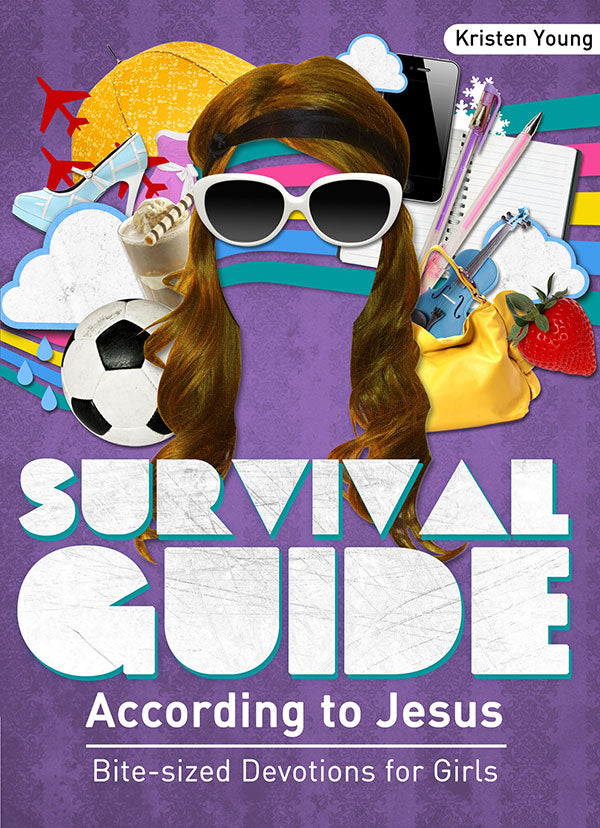
Equipping kids to live well with social media
Becky Sedgwick explores three things God brings to the conversation.
As a definite ‘digital visitor’, recent headlines have racked up my anxiety levels around the influence of social media on our children and teens.
Last year, the BBC described the tragic death of a young teenager as ‘a social media murder’, started by an online dispute, fuelled by and planned on social media. Professionals cite that social media negatively affects young people’s mental health, sometimes to disturbing levels. Regardless of whether a child has access to social media themselves, the extraordinarily high levels of social media usage amongst children and young people means that they may well be exposed to the current themes and trends in the playground. Add to this flamboyant headlines such as ‘Squid Game social media craze warning after kids taken to Children’s Hospital with burns’ and it is clear to see why many parents are confused, anxious or even fearful about their children’s social media habits.
It’s not all doom and gloom
There are many benefits to our children engaging with social media and practical steps we can take to help us parent well around it. There are websites and books that can educate you about social media in all its forms as well as give great practical advice on how to navigate all this with your children and equip them to make good decisions about how they engage with it. Here are some that have been recommended to us:
• internetmatters.org has a wide range of resources for parents and professionals, from basic information about social media and the digital world to an inclusive digital support hub for parents and carers of children who are vulnerable or who have additional needs.
• Digital Awareness UK have a set of digital awareness video resources for parents and carers.
• For the Australian context, you can find lots of helpful information and advice on the eSafety Commissioner’s website and the Raising Children Network, categorised by age group: school age, pre-teen and teens.
• The book Parenting in the Screen Age by Dr Delaney Rushton is designed to help parents have good conversations with their children about technology.
• Two books recommended by Christian parents are: Left to Their Own Devices? Confident Parenting in a World of Screens by Katharine Hill and Raising Children in a Digital Age by Bex Lewis.
Three things God brings to the conversation
But is there anything extra God might bring to this conversation? What if we started by recognising that our core foundation as Christians is God’s love—his unconditional love for us and his desire that we share his love with others? How might this help us all negotiate the tricky world of social media well?
God’s love for us
We all, our children and teens included, need to know that God’s love for us is unconditional, never-ending and so so generous. We are made in his image and have intrinsic value and worth simply because we are his children and he loves us. So when we engage with social media, he wants us to do it in a way that is good for us.
Some ideas for you to explore:
• Frame your own use of social media: why you post what you do, how you decide which platforms to interact with and why, what prompted you to take a social media ‘fast’. Where is God in this? How has he guided you? Discover more about ‘framing’ in our ‘Making sense of life’ session of our ‘Parenting for Faith’ course.
• Ask questions and start conversations: Why do you think people follow social media crazes? Wow, what great fruit came from that social media campaign! Hmmm, I’m not sure I’d like a picture of me like that to be posted online. What do you think? OK, this app has an age restriction of 13+ on it. Why do you think that is?
• Equip your children to think critically about what they see, read or hear. Is it something God would want me to see/hear/feel/do? Does this fit with what a loving parent would want for me? Is this good for me?
• Philippians 4:8 can be really helpful as a standard to hold things up to as we help work out whether to engage with something or not:
‘Finally, brothers and sisters, whatever is true, whatever is noble, whatever is right, whatever is pure, whatever is lovely, whatever is admirable—if anything is excellent or praiseworthy—think about such things.’ (Philippians 4:8)
God’s love for others
Inseparable from God’s love for us is his desire that we partner with him in sharing his love with others. Understanding this can help us think well about how we use and interact with social media. It may also mean that sometimes we choose to stand out from the crowd, which may be difficult or costly.
Some ideas for you to explore:
• Consider what loving our neighbour as we love ourselves looks like on social media. Does what we do share God’s love? If I post a comment, will it build someone up or knock them down? Am I careful with what I ‘like’ or share?
• Could you, as individuals or as a family, create ways to deliberately share God’s love via social media? For example, by supporting a campaign, by setting out to encourage others, by raising issues, by sharing posts that build people up or tell them about God’s love and good news.
• Equip your children and teens to be prepared to stand out in a tricky online world—where we are ‘in the world but not of it’—just as much as in our physical world. Share stories of people from the Bible and Christian history who have lived faithfully in a ‘strange land’: Joseph in Potiphar’s house, Daniel in Babylon, Paul and his struggles with the Corinthians, Corrie Ten Boom, Danielle Strickland and Jackie Pullinger, for example. Wonder together what it feltlike for them, even though they knew God was with them. Was it easy standing out from the crowd? What helped them?
God’s love as a safe refuge
God’s love for us, his belief in us and his acceptance of us is a safe refuge when the world becomes hard. For our children and teens, sometimes exposed to cruel comments online or haunted by comparison, God’s love is the place they can be reminded about who they really are—beloved and valued children of the King—and find the strength to face their bullies or their own fears and insecurities.
Some ideas for you to explore:
• Help your children know how to find refuge in God when the world seems against them: share stories and passages from the Bible such as Elijah retreating into depression and meeting God in the quietness (1 Kings 19); Psalm 22; the story of Mordecai and the Jewish nation in the book of Esther; Psalm 37:1–7; Psalm 69; Jeremiah’s complaint after being put in the stocks (Jeremiah 20:1–13); Jesus at his trial and crucifixion.
• Share stories about your own experiences of being embarrassed or humiliated. How did you feel? What did you do? What was God doing? What helped you get through it?
• Help your child connect with God if they are struggling to chat to him themselves about what’s upset them. There are ideas about how to do this in the ‘Prayer Ministry’ session of the ‘Parenting for Faith’ course.
Even though we are raising children in what seems like a strange new world, the love that God has for us, our children and the people they connect with online provides a strong, unchanging foundation, a safe refuge that we can always run to.
This article originally appeared at ‘Parenting for Faith’.
---
Becky Sedgwick works for UK ministry Parenting for Faith, writing their resources. Before this, she worked as a Children and Families Worker at St James’ Church, Devizes, UK where she ran Parenting for Faith courses.

Survival Guide According to Jesus (Girls' edition)
In the Gospels, we read about Jesus’ miracles, his teaching, his life, death and resurrection. But this is not meant to stay as mere information—it needs to change our lives. How has Jesus’ death changed your life? Are you pointing people to Jesus by the way you live, love and serve him? Living as a young Christian can be hard, particularly when you’re challenged by the world’s view of how you should treat yourself and others.
For more articles from Growing Faith, subscribe to our monthly e-newsletter.
To hear about the latest books and resources from Youthworks Media, subscribe here.








